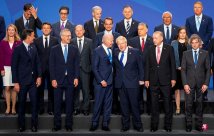(Morning News) There are three countries in Africa who have no cases of human infection. The three countries are Ghana, Morocco and South Africa.Two patients in South Africa have confirmed diagnosis, which shows that there is a high possibility of local communication.
Monkey acne spreads outside the six African countries with the history of monkey acne popularity, which has already attracted attention.Mudi, director of the African region of the World Health Organization on Thursday (June 30), said: "Monkey acne spreads geographically to part of Africa in Africa that has never been found before.The efforts of strengthening monitoring and laboratory diagnosis are the cornerstones of disease control. "
UNAC reports that WHO is cooperating with the official national health in Africa to strengthen monitoring and laboratory diagnosis.To discover cases and curb the silent spread of the virus.
As of June 28, the African continent reported 1821 monkey acne cases in 13 countries, of which 109 were confirmed by the laboratory in nine countries.The number of confirmed cases accounts for 2%of the world's more than 4,500 confirmed cases.However, there are a large number of suspected cases in this area, of which 81%are in the Democratic Republic of the Congo, which highlights the need to improve the diagnosis.
WHO is working hard to raise a 60,000 test kit for Africa
Thanks to the efforts of the laboratory ability after the crown disease epidemic, all African countries currently have detecting monkeys to detect monkeysThe polymerase chain reaction instrument required for acne, but many countries lack reagents and lack training in specimen collection, processing and testing in some cases.WHO is trying to prepare 60,000 testing packets for Africa, of which about 2,000 will be shipped to high -risk countries, and 1,000 will be shipped to countries with low risks.
WHO pointed out that some vaccines in the second and third -generation ceiling vaccines may have effect on monkey acne, and one of them has been approved to prevent monkey acne.However, the supply is limited.
Muti emphasized that due to the limited vaccine and antiviral drugs, WHO does not recommend that large -scale vaccination of monkey acne vaccination, but instead of being targeted on people who have been in contact with monkey acne or high -risk people.Vaccine vaccination, including health workers, laboratory personnel, and epidemic team responders.



